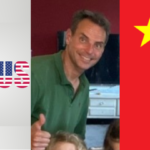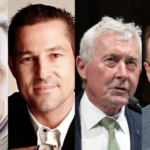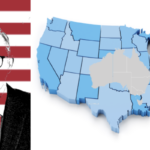Citizen Tortured by Australia at Behest of US, Over Offence That Isn’t a Crime Over Here

Saffrine Duggan, wife of Australian citizen Daniel Duggan, detailed in a letter to the NSW Ombudsman in early June that her husband had been held in extreme isolation for 230 days by that point, as he continues to be remanded at Lithgow gaol, whilst the US attempts to extradite him.
The UN stipulates that prolonged solitary confinement, “in excess of 15 consecutive days”, is a form of torture and, as such, should be banned. But Albanese is currently overseeing that this crime is perpetrated upon a citizen “based on 11-year-old, unproven allegations” he “strenuously denies”.
Duggan was arrested last October in the NSW town of Orange, where he lives with Saffrine and their six kids, as the White House is claiming he breached US arms control law whilst working at a legitimate flying academy in South Africa over 2010 to 2012, which included training Chinese people.
Dan’s solicitor Dennis Miralis will be arguing on 25 July for a temporary stay on proceedings as the Inspector General of Intelligence and Security has determined to inquire into the matter, as Duggan has claimed that ASIO may have “unlawfully lured” him back to Australia to facilitate the arrest.
Greens Senator David Shoebridge raised these points in parliament on 22 June, as he questioned a number of aspects, including the luring, how an Australian citizen since 2012 can be extradited over an offence that’s not a crime here, as well as why he can’t be released on bail in the interim.
The AUKUS-based order
“This is an Australian citizen, with kids and a family in my home state of NSW, who is facing potentially indefinite detention at the request of the United States government for conduct, that even if proven, doesn’t amount to a crime under Australian law,” said Senator Shoebridge.
Duggan was arrested on 21 October last year, under the provisions of section 15 of the Extradition Act 1988 (Cth). The 54-year-old, who had been working as the general manager of an aviation consultancy in China since 2017, had served 13 years as a US Marine at the time he left the military.
A US District of Columbia grand jury filed an indictment against Duggan in 2017, and as Shoebridge points out, that was exactly when the US started talking about China as a strategic threat. The claim against Duggan is that he sought to export defence services, specifically flight training, to China.
Attorney general Mark Dreyfus approved Duggan’s extradition just before Christmas, and as Shoebridge has underscored a number of times, for such an extradition to take place under the 1976 Australia-US extradition treaty, the alleged offence must be a crime under Australian law as well.
However, so far, the nation’s chief lawmaker is yet to clarify whether the alleged crime the US wants to stew Duggan over is even an offence over here.
“That’s a pretty extraordinary set of circumstances, and it should make many of us question the commitment of our government to stand up for our individual rights, when it conflicts with the interests of one of our powerful friends,” the Greens Senator told Sydney Criminal Lawyers.
Thrown to the wolves
Duggan was in China last year running his aviation consultancy business in Shandong Province, when he was contacted by ASIO, and informed him that he should return to Australia as the intelligence agency had just approved his clearance for an Australian aviation security ID card.
Yet not only was there no further mention of the card on his return, but instead, after a few weeks, Duggan was arrested and taken into custody in Orange.
And while an intelligence agency using such a tactic to lure a suspect into a position where they can be arrested is completely legal in the States, in Australia, this practice is unlawful.
So, in his lengthy complaint to the IGIS, Duggan made clear mention of this matter, and it is what appears to have led to the official inquiry into the case. Although under the terms of the 1976 Australian-US treaty such actions aren’t expressly ruled out as a means to facilitate extradition.
“I’m grateful that the Inspector General has commenced that investigation because to date, ASIO has been hiding behind national security laws to avoid giving any answers on the public record,” Shoebridge asserted.
“Of course, it’s deeply problematic if Australian security agencies are luring Australians home, not for their protection, but in actual fact to throw them to the wolves for the benefit of the United States.”
Political prosecution
Around the time that Duggan was arrested, the UK government announced that it was going to investigate 30-odd former military pilots on suspicion of having trained Chinese people, whilst our defence minister Richard Marles said he was going to take a look into the local situation.
But going back a decade ago, when Duggan is supposed to have committed some grave national security crime, China wasn’t on the US radar. There was no ongoing build up to war with Beijing. AUKUS hadn’t been thought of. And the cold war political climate of the moment didn’t exist.
Duggan was just doing what many other ex-military pilots were doing, training others to fly planes in exchange for money, like any other regular job. And what he, and many others like him were doing, was completely lawful, above board, and no one was concerned about it.
“There is no question that this is in large part a political prosecution on the part of the United States,” Shoebridge made clear. “The conduct that the United States is complaining of was conduct that consisted of training in full public view with a South African training company in South Africa.”
Indeed, Article VII(1)(c) of the Australia-US extradition treaty outlines that “extradition shall not be granted” if “the offence in respect of which extradition is requested is of a political character, or the person” proves that the request has been made to punish them for an offence political in nature.
“Not only was the training itself public but Duggan openly spoke of the training he had undertaken in seminars and training sessions, and this was material that was freely distributed on the internet,” Shoebridge added.
“All that has changed since 2011 is the global political environment and the loud drums of war against China.”
The US rules-based order
But while the IGIS inquiry and the prospect of a temporary stay are welcomed, it must be remembered that this is all taking place against a backdrop that includes the Assange extradition, the establishment of AUKUS and the erosion of Australian sovereignty in the face of US power.
“If the past is any gauge of the future,” Shoebridge quipped, “if a US president asked an Australian prime minister – whether Coalition or Labor – to roll over so they could tickle their belly, they’ll be on the ground in an instant.”
“And whether it is hundreds of billions of dollars for US and UK submarines, the indefinite gaoling of Australian citizens or providing whatever forward bases for submarines, B-52s and marines that the United States asks for, this does not look like an equal relationship.”
“This has all the hallmarks of a master-servant relationship,” Greens Senator David Shoebridge warned in conclusion. “And Australia is very much the servant, under the Albanese government.”







